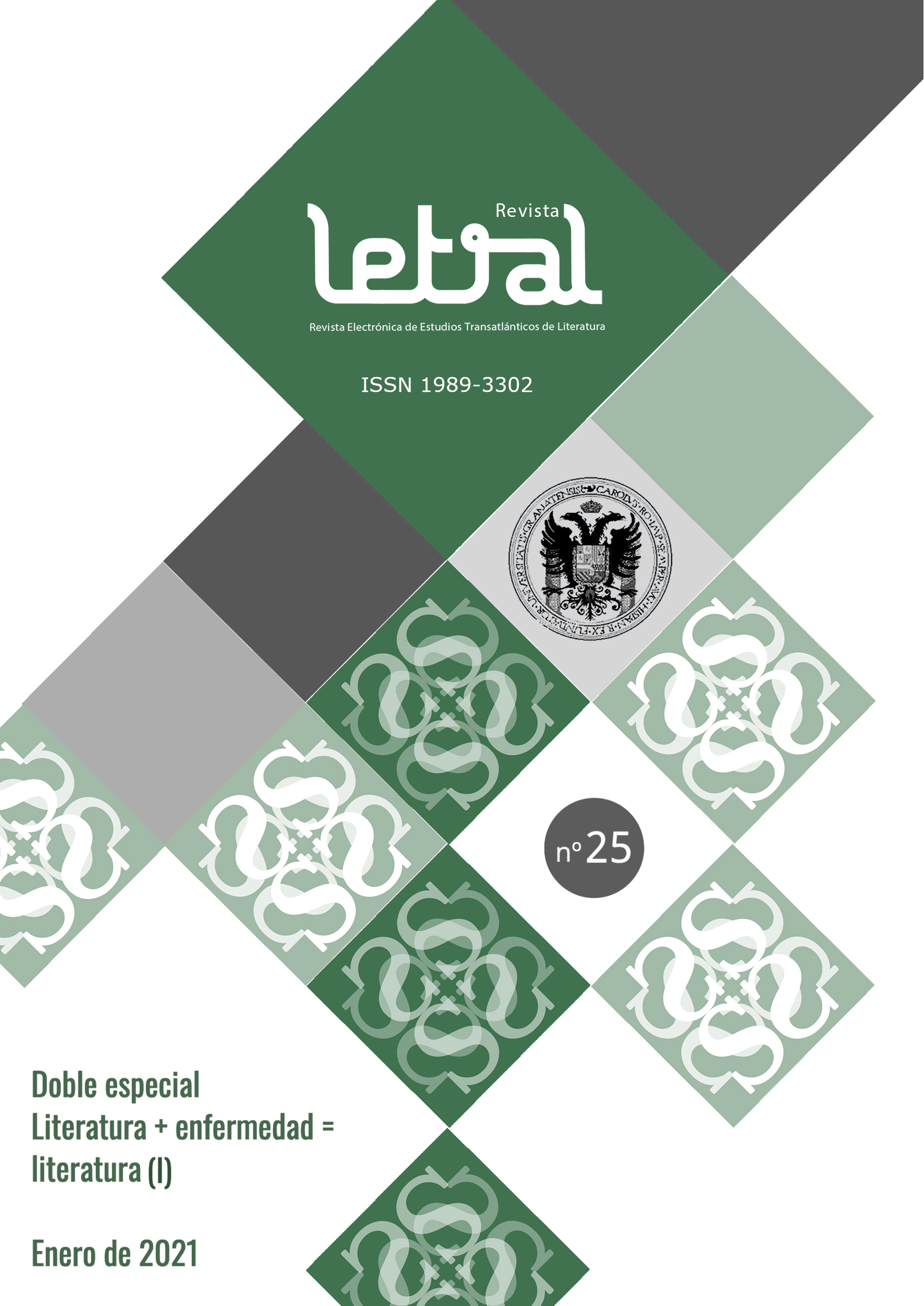The Lost Illusions. Subjetivities of the Defeat in the Narratives by Diego Zúñiga and Canek Sánchez Guevara
Keywords:
narrative, defeat, revolutionary processes, Diego Zúñiga, Canek Sánchez GuevaraAbstract
The present article seeks a dialogue between the narratives by two authors that embody the defeat –understood in the avelarian sense of a fallen time that does not allow readings through the epic and the exaltation of the subjects– of two revolutionary processes: The Unidad Popular in Chile and the cuban Revolution, this through the construction of the textual entity “subject”. The narratives by Diego Zúñiga (Iquique, Chile, 1987) and the writer and grandson of Che Guevara, Canek Sánchez Guevara (Havana, 1974-Mexico City, 2015) will be read through theoretical authors such as Idelber Avelar, Leonor Arfuch, Jorge Fornet and Odette Casamayor, among others to understand how they reveal a “topography of defeat” through the category of disillusioned and disbelieving subjects that they construct.
Downloads
References
Agamben, Giorgio. “¿Qué es un dispositivo?”. Sociológica (México), vol. 26, n.º 73, may./ago, 2011, disponible en:
http://www.scielo.org.mx/scielo.php?script=sci_arttext&pid=S0187-01732011000200010.
Amaro Castro, Lorena. La pose autobiográfica. Ensayos sobre narrativa chilena. Santiago de Chile, Ediciones Universidad Alberto Hurtado, 2018.
Arfuch, Leonor. El espacio biográfico. Dilemas de la subjetividad contemporánea. Buenos Aires, Fondo de Cultura Económica de Argentina, 2002.
Avelar, Idelber. Alegorías de la derrota: La ficción postdictarorial y el trabajo del duelo. Santiago de Chile, Cuarto Propio, 2000.
Baudrillard, Jean. La transparencia del mal. Ensayos sobre los fenómenos extremos. Barcelona, Anagrama, 1990.
Bauman, Zygmunt. Vida de consumo. Buenos Aires, Fondo de Cultura Económica, 2007.
Bauman, Zygmunt. Miedo líquido. La sociedad contemporánea y sus temores. Madrid, Espasa Libros, 2010.
Beasley-Murray, Jon. “La constitución de la sociedad: Pinochet, postdictadura y la multitud”. Pensar en/la postdictadura, Nelly Richard y Alberto Moreiras (eds.), Cuarto Propio, 2001, pp. 23-39.
Biset, Emmanuel et al. Sujeto. Una categoría en disputa. Argentina, La Cebra, 2015.
Bobes, Velia Cecilia. “Historia mínima de la Revolución cubana, de Rafael Rojas”. Perfiles latinoamericanos, vol. 24, n.º 48, jul./dic., 2016, pp.319-325, disponible en:
http://www.scielo.org.mx/scielo.php?script=sci_arttext&pid=S0188-76532016000200319.
Bolaño, Roberto. Llamadas telefónicas. Barcelona, Anagrama, 1997.
Bolaño, Roberto. Los detectives salvajes. Barcelona, Anagrama, 1998.
Casamayor, Odette. “Soñando, cayendo y flotando: itinerarios ontológicos a través de la narrativa cubana post-soviética”. Revista Iberoamericana, n.º 232-233, 2010, pp. 643-670.
Díaz Infante, Duanel. “Prólogo”, Una literatura sin cualidades. Escritores cubanos de la generación cero. Duanel Díaz Infante (comp.), Virginia, Casa Vacía, 2016, pp. 7-17, disponible en: https://www.academia.edu/28894022/Una_literatura_sin_cualidades_Escritores_cubanos_de_la_generación_cero_Pro_logo_pdf.
Espinosa, Patricia. “Aquí, Chile: literatura neoliberal y literatura post estallido”, 18 de diciembre, 2019, disponible en: https://palabrapublica.uchile.cl/2019/12/18/aqui-chile-literatura-neoliberal-y-literatura-post-estallido/.
Fernández Retamar, Roberto. “El Otro”, disponible en: https://www.poeticous.com/roberto-fernandez-retamar/el-otro?locale=es.
Fornet, Jorge. “La narrativa cubana entre la utopía y el desencanto”. Hispamérica, n.º 95, 2003, pp. 3-20.
Foucault, Michel. Tecnologías del yo y otros textos afines. Barcelona, Paidós, 1991.
Foucault, Michel. La hermenéutica del sujeto: Curso en el Collège de France: 1981-1982. Buenos Aires, Fondo de Cultura Económica, 2014.
Guevara, Ernesto. “El hombre nuevo”. Ideas en torno de Latinoamérica, Leopoldo Zea (editor), vol. I. México, UNAM, 1986, pp. 1-11.
Gutiérrez, Pedro Juan [1998]. Trilogía sucia de La Habana. Barcelona, Anagrama, 1999.
Gutiérrez, Pedro Juan [1999]. El Rey de La Habana. Barcelona, Anagrama, 2001.
Gutiérrez, Pedro Juan [2000]. Animal tropical. Barcelona, Anagrama, 2006.
Jameson, Fredric. Teoría de la postmodernidad. Madrid, Trotta, 1996.
Puñales-Alpízar, Damaris. Escrito en cirílico: el ideal soviético en la cultura cubana posnoventa. Santiago de Chile, Cuarto Propio, 2012.
Richard, Nelly y Moreiras, Alberto (eds.). Pensar en/la postdictadura. Santiago de Chile, Cuarto Propio, 2001.
Rojas, Rafael. Tumbas sin sosiego. Revolución, disidencia y exilio del intelectual cubano. Barcelona, Anagrama, 2006.
Rojas, Rafael. Historia mínima de la Revolución cubana. México D.F., El Colegio de México, 2015.
Sánchez Guevara, Canek. 33 revoluciones. Buenos Aires, Alfaguara, 2016.
Simal, Mónica y Dorta, Walfrido. “Literatura cubana contemporánea: lecturas sobre la Generación Cero (introducción)”. Revista Letral, n.º 18, 2017, pp. 2-8.
Willem, Bieke. “Narrar la frágil armadura del presente. La paradójica cotidianidad en las novelas de Alejandro Zambra y Diego Zúñiga”. Interférences littéraires=Literaire interferenties, n.º 13, 2014, pp. 53-67.
Zúñiga, Diego [2009]. Camanchaca. Santiago de Chile, Literatura Random House, 2014.
Zúñiga, Diego. Niños Héroes. Santiago de Chile, Literatura Random House, 2016.
Published
How to Cite
Issue
Section
License
Revista Letral is an open access journal under a Creative Commons Atribución-NoComercial 4.0 license.
The works published in this journal may be reused, distributed and publicly presented for non-commercial purposes, provided that: cite the authorship and the original source of the publication (journal, publisher and URL of the work).
We strongly recommended you to share our published articles in social and scientific networks, institutional and public repositories, personal or institutional websites, blogs, Google Scholar, ORCID, ResearchID, ScopusID, etc.
The journal allow the author(s) to hold the copyright and to retain publishing rights without restrictions.
We are completely free, both for readers and authors.














